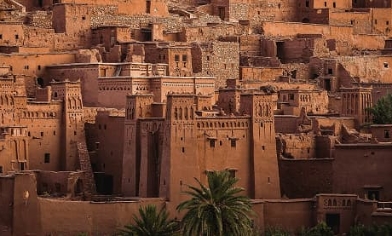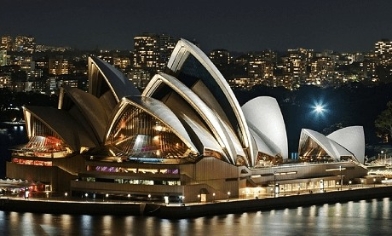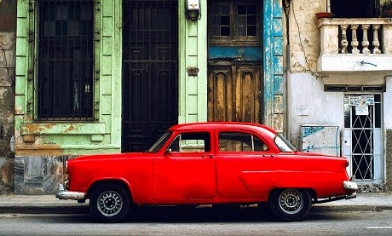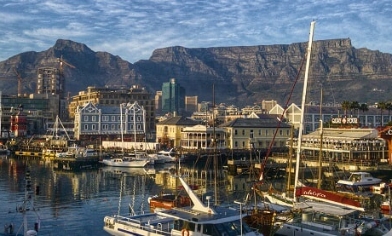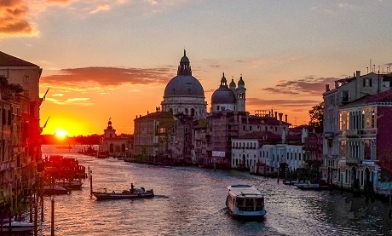Healthcare in Egypt
Egypt has had a thriving tourist industry for a long time, and so the healthcare of tourists is normally taken seriously. Most hotels on resort-based trips will have a doctor, and hospital treatment is available if you have adequate travel insurance.
The Foreign, Commonwealth and Development Office (FCDO) advises that healthcare provision outside of major cities and tourist areas can be basic. So if urgent treatment is required, seek it in Cairo if possible. If this isn't possible, look to the nearest major town.
If urgent treatment is required, try to seek it in Cairo if possible and, if not, the nearest major town.
Dengue fever has been known to be present in Egypt, so it’s important to guard against insect bites. Find more about dengue and other risks on the Travel Health Pro page for Egypt. This can be done by wearing long, loose and light-coloured clothing – which it is often important for women to do anyway outside of resorts. Read this guide on how to protect against insect bites to be sure you’re not putting yourself at risk.
Scrutinise the payments you make for any medical care to be sure you’re not overpaying. If you suffer a medical emergency and need to be taken to hospital, contact your travel insurer immediately to see how they are able to help. The emergency services number is 123. Much of the healthcare available in Egypt is basic, and your insurer may have more up-to-date information about the best treatment centres than you do.
If you require emergency medical help but do not know where to go or where you are being taken, contact the British Embassy in Cairo for information about the most commonly used hospitals.
If you are taking prescription medication and need to travel with it to Egypt, make sure you have a copy of your prescription as well as a doctor’s note explaining your need for the medicine, as some prescription and UK-legal drugs are prohibited in Egypt.
Travel risks in Egypt
Egypt has been affected by a number of ongoing regional tensions, and these have rendered some parts of Egypt unsafe and others even more dangerous. The FCDO travel advice for Egypt has the most up-to-date information about where you should not travel to, as well as the safest methods of travelling between areas.
If you travel to an area that the FCDO advises against travelling to then it’s likely to invalidate your travel insurance.
The shifting of political supremacy between groups and individuals has created a large amount of tension, which can make it dangerous to travel during times of heightened political activity. It’s unwise to become involved in protests and demonstrations, as these can quickly escalate into violence and are often met with severity by local forces.
Anyone visiting Egypt should be particularly vigilant against threats when travelling to regions that have a history of conflict, and should plan travel carefully to avoid more volatile regions. The latest information on these areas can be found on the FCDO website.Consult the map for orange and red zones for more information.
Although direct flights between the UK and Sharm el Sheik were suspended following the crashing of an aircraft from the resort in 2015, hard work by UK and Egyptian authorities enabled these flight to resume in October 2019. The resort itself is considered safe.
Travel safety in Egypt
Crime rates are higher in bigger cities and vigilance should be practiced at all times to avoid falling foul of holiday scams or theft of belongings. Stay away from large groups and gatherings, and wear your bag on your front if you have to be around them.
Try to avoid carrying things in your pockets and instead use a money belt that can be worn underneath your clothes. Make sure you keep important documents safe on your travels.
Egyptian merchants will normally barter for items you want, and in many situations you may be approached with aggressive offers of sale for things you don’t want. This is particularly prevalent in areas that see high concentrations of tourists and few other people, such as the pyramids and national monuments. Of course it is up to you how hard you drive for a bargain, however do not feel obligated to accept the first price offered. Bargaining is the cultural norm and, as a tourist, there may be a perception that you have more money to spend, driving initial price offers up.
It can be uncomfortable and annoying if you don’t want the attention at all, and there is no sure-fire way of avoiding it. However, bear in mind that the sooner a vendor realises he or she is not going to make a successful sale from you, the sooner he or she will try someone else. It helps to be decisive about things you wish to purchase before entering a negotiation. If you travel as part of an organised group, you are less likely to be bothered.
If you want to travel somewhere by taxi, try to book it via your hotel. They will normally have a preferred provider, or a small group of them, whose services could be better than a taxi you hail on the street. It is unwise to take a taxi or microbus alone, particularly if you are female.
The FCDO guidance for Egypt advises that several Western women have been victims of sexual and physical assault in recent years. Female tourists should be mindful of the sort of opportunities that an unscrupulous person might take and travel accompanied if possible.
Report any crimes to the Egyptian Tourist Police immediately. If you need to make a claim with your travel insurer, they will require a police report.
Egyptian culture
The national language of Egypt is Arabic, however tourists will find English commonly spoken. Banknotes, road signs, shop frontages and even many day-to-day spoken words will be in English, and learning English is a part of many Egyptians’ education. Tourists oughtn’t face any difficulty in conversing with locals in English, even if it is patchy. If you need something important translated, ask at your hotel.
Many tourists will visit Egypt for its ancient culture. The country has been variously conquered by Alexander the Great, the Romans, the Ottomans and the Arabs, and was briefly under colonial rule from Great Britain. There remain traces of these cultures in many aspects of Egyptian life, but the most prevalent is Muslim culture. If you’re inexperienced, it’s a good idea to read up on how to behave in Islamic countries. Knowledge of local customs, such as when to remove one’s shoes, how to greet people and how to eat, can go a long way. This is more important if you are staying as a guest in a local’s home.
Egyptian cuisine is diverse and lauded around the world. As with eating anywhere, make sure meat is cooked thoroughly and that you avoid food that has been left out, particularly uncovered, for any length of time.
The Islamic holy month of Ramadan is an important cultural landmark and involves abstaining from eating and drinking during daylight hours for participants. If you visit during this time, it can be insensitive to eat and drink around those who are fasting. While many may not mind, it's polite to ask.
Getting around
Road travel in Egypt can be precarious and even dangerous due to road conditions and different driving standards. Traffic laws are rarely enforced, and driving is not for the faint-hearted.
Taxis are best booked through reliable firms but are normally subject to the same traffic as any other car.
Trains are reasonably priced and run long distances across country. It’s advisable to travel in first or second class, and shorter lines are unlikely to offer air-conditioned trains. Therefore, for the sake of comfort, train travel is best used to cover greater distances.
The FCDO have advised that there have been a number of very serious rail crashes recently. While there is no caution a passenger can take to protect against this, it is worth bearing in mind when considering your travel options.
Consult the FCDO website to understand safety concerns before booking or taking internal flights, as these can pose a safety risk.
Buses are reliable and cost-effective, however can be uncomfortable when crowded or travelling long distances. There are also river boats that serve the Nile and Red Sea, some of which are for getting around and some for touristic activities. This can be a great way to see some sights and have a unique experience, but book through a reputable operator for quality services.
Travel insurance for Egypt
If you are planning on any adventure activities, make sure you are covered to do it with your travel insurance. If you are not, speak to your insurer to see if you can take out the necessary level of cover.
Take a copy of your travel insurance policy document with you in order that you can check your cover for any activities you plan to do on the spur of the moment.
Remember there are activities that could have exclusions placed on them (ie activities that you can do but only in certain circumstances, such as wearing a helmet when cycling).
As there are no reciprocal healthcare agreements in place between the UK and Egypt, it’s especially important to have travel insurance with enough cover for any medical expenses you incur if you fall ill or are injured while you’re in the country.
Travel insurance can also provide the reassurance you’re protected against cancellation, travel delays and disruption, plus lost, damaged or stolen belonging such as luggage and passports.
Does Egypt come under Europe for travel insurance?
Although Egypt spans two different continents – Africa and Asia – neither of them is Europe so you’ll usually find insurers count it as outside of Europe in their policies too.




